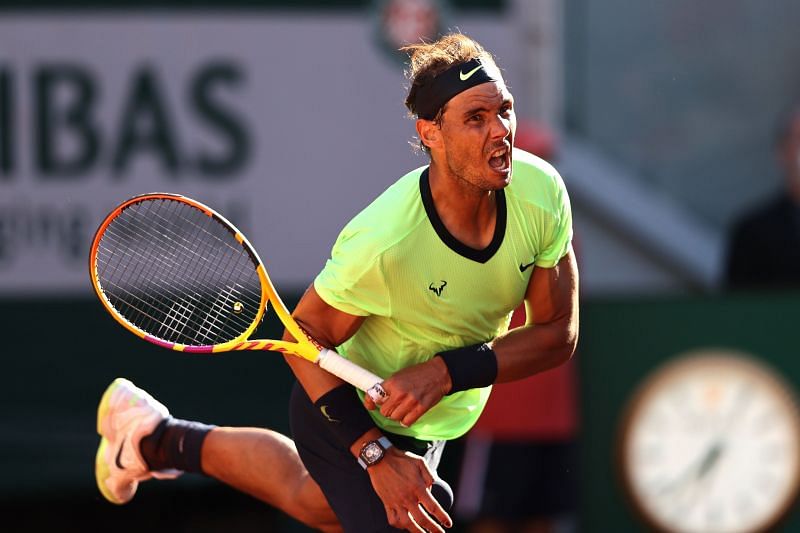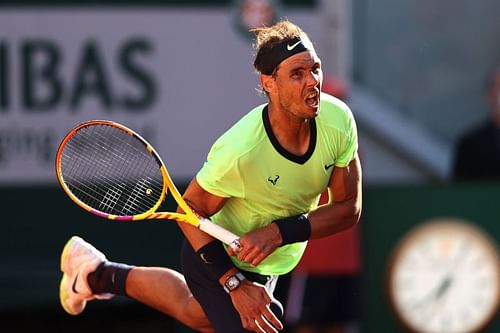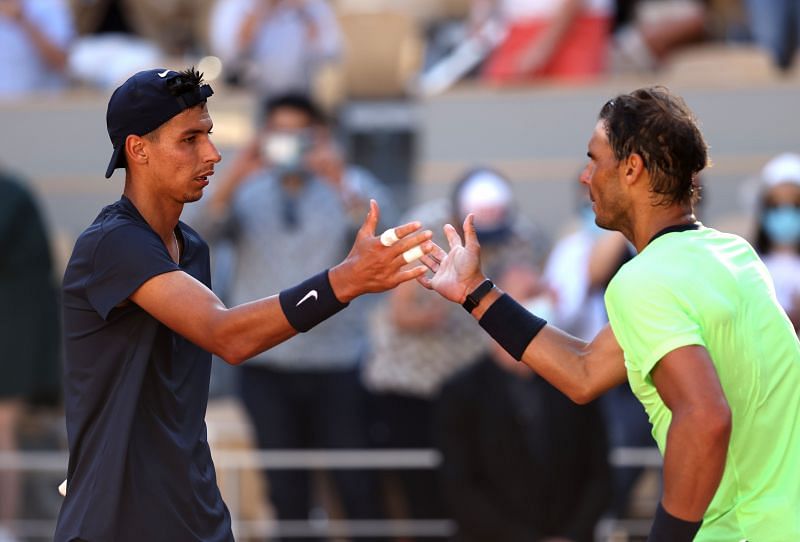
"Nearly impossible to control the ball" - Mats Wilander on what makes Rafael Nadal so tough to face at Roland Garros

Rafael Nadal stamped his authority on Australian youngster Alexei Popyrin with a straight-sets victory in their first-round match at Roland Garros 2021 on Tuesday.
Nadal dominated the first two sets but was forced to work hard in the third, clawing his way back from 2-5 down before sealing it in a tiebreak.
After Rafael Nadal's win, Mats Wilander explained why the Spaniard is so hard to beat on clay and how his playing style caused so many problems for Popyrin.
Speaking on Eurosport, the seven-time Grand Slam champion pointed out that the bounce Rafael Nadal generates off the surface makes it very difficult for his opponents to handle.
"Because the ball is bouncing so high and he loves that, we think he prefers it but let's not forget what happened at Roland Garros last year," Wilander said. "The ball bounces so high that Popyrin cannot control it at all when Rafa hits the return 2.5 metres over the net and has 4000 rpms on it. You could literally hit shots that clear the fence (court) if you mishit him a little bit so it is nearly impossible to control."
Alexei Popyrin served for the third set at 5-3 but played arguably his worst service game of the match, committing five unforced errors, including a double fault on set point.
Wilander said Popyrin "choked" in the face of Rafael Nadal's vicious topspin.
"I thought he served better in the third set, serve and volleying a little bit so he was disturbing a little bit Rafa's rhythm," Wilander continued. "When he served at 5-3 he missed an easy volley, he missed an easy forehand and that's the problem - you choke a little bit against Rafa's spin. You have to be a little relaxed you gotta hit through the ball. When you get a little tentative that ball can go anywhere and it's very difficult to control."
Rafael Nadal was forced to attack after trailing 5-2: Alex Corretja

Alex Corretja, a two-time finalist at Roland Garros, also weighed in on Rafael Nadal's first-round performance. Corretja believes that trailing 5-2 forced the Spaniard to bring out a more aggressive brand of tennis.
"In a way I think it's (playing a longer third set) been very positive for Rafa, first two sets they were quite easy," Corretja said. "And the third set the fact that Popyrin was leading 5-2 forced Rafa to react, to play more aggressive, more solid, he played with experience.
"When you are down against a young guy it's always difficult to win the set but that's what Rafa did perfectly. And I believe it was good for him to play a little bit longer than 3 2 or 1 (games)."
The Spaniard pointed out that players like Popyrin prefer to hit the ball with a flatter trajectory, making it difficult for them to negotiate Rafael Nadal's topspin.
"The thing is, the ball bounces so high up to you, and players like Popyrin like to hit the ball flat," he added. "But if the ball bounces and it comes up to your head, it's so difficult to control, and that's why he shanked it with his racket and it's not that easy to play with him."